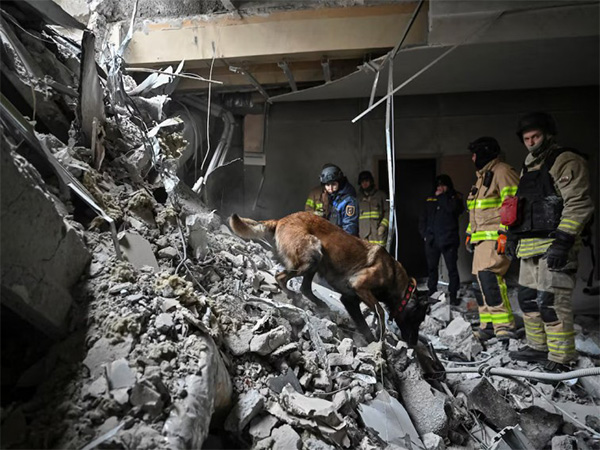Russia Rejects Western Security Guarantees for Ukraine Amid European Initiative
Russia dismissed Western security guarantees for Ukraine, as 26 countries pledged a 'reassurance' force if a peace agreement with Moscow occurs. The coalition, led by European nations, excludes U.S. involvement, with Kremlin skepticism over foreign military presence, reflecting complex geopolitical dynamics.

- Country:
- France
Russia firmly dismissed Western-proposed security guarantees for Ukraine on Friday, following a pledge by over 26 countries to form a 'reassurance' force in the conflict-scarred nation should a peace agreement with Moscow emerge, according to a report by France 24. This coalition, primarily composed of European countries, seeks to deter future Russian aggression against Ukraine. The specific role of the United States in this initiative remains uncertain, despite European leaders engaging in virtual talks with U.S. President Donald Trump after the Paris summit.
Kremlin spokesperson Dmitry Peskov refuted the plan, asserting that 'foreign, especially European and American' troops are not capable of providing such assurances to Kyiv. Convened by French President Emmanuel Macron, the Paris summit included participation from Ukrainian President Volodymyr Zelensky and saw remote involvement from leaders like British Prime Minister Keir Starmer. This meeting underscored Macron's renewed efforts to showcase Europe's autonomous response capabilities, following Trump's direct dialogues with Russian President Vladimir Putin.
Macron announced that 26 nations have officially committed to deploying 'reassurance force' troops in Ukraine, whether on the ground, at sea, or in the air, although not on the front lines. President Zelensky welcomed this development as a significant concrete step towards reinforcing Ukraine's defenses. However, the U.S. stance on involvement is unclear, amidst internal coalition divisions, with German Chancellor Friedrich Merz urging for greater caution. Meanwhile, Italian Prime Minister Giorgia Meloni stated Italy would not send troops but could aid in peace agreement monitoring. As concerns mount over Putin's reluctance to negotiate, exemplified by his recent visit to China, Zelensky and Trump discussed further sanctions to pressure Russia. Macron noted that further sanctions would be pursued in coordination with the U.S. if Russia continues to delay agreements and escalate attacks.
This geopolitical tension is further complicated by a recent Russian rocket attack on northern Ukraine, which resulted in the deaths of two Danish Refugee Council members clearing mines, as reported by local Ukrainian authorities.
(With inputs from agencies.)
ALSO READ
Ukraine moves to ban an Orthodox church it says is linked with pro-war Moscow church
Land quarrels in rebel-occupied Congo threaten Trump peace deal
EU should not return to Russian energy when there's a peace deal, energy commissioner says
RPT-Land quarrels in rebel-occupied Congo threaten Trump peace deal
Putin Extends Invitation to Trump for Moscow Visit










